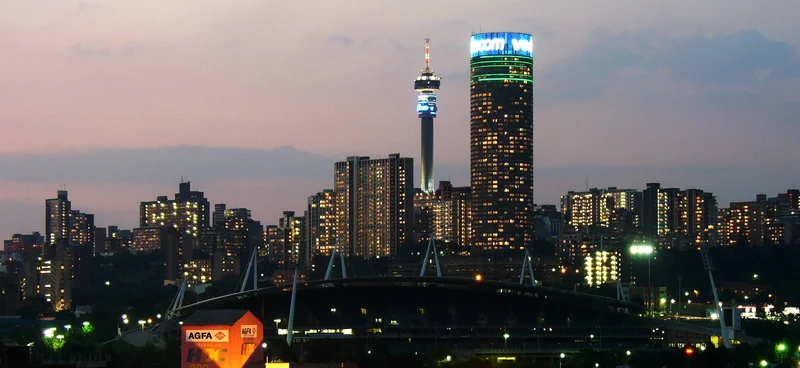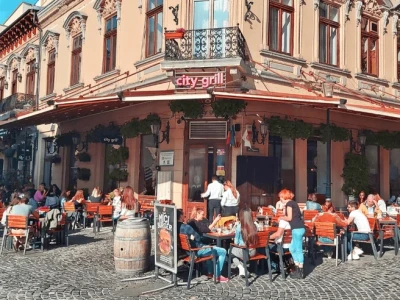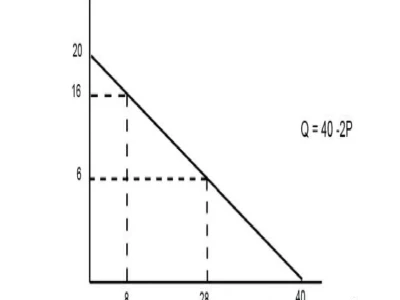Pre-Written Title: Joburg's Storms: A Wake-Up Call for Urban Resilience?
Okay, folks, let's talk about Johannesburg. Not just the Joburg of today, battling flash floods and social media memes, but the Joburg of tomorrow—a city that learns, adapts, and thrives in the face of increasingly wild weather. Is it just wishful thinking? I don't think so.
The Rising Tide: More Than Just Rain
What happened in Joburg this week isn't just about heavy downpours. It's a symptom of something bigger, something we need to be talking about: urban resilience. Think of it like this: our cities are like bodies, and climate change is the disease. The storms are just the fever, a sign that something's wrong internally. We can treat the symptoms – pump out the water, rescue stranded motorists – but unless we address the underlying condition, we're just going to keep getting sicker.
The news paints a grim picture: flooded roads, overwhelmed drainage systems, and emergency services stretched thin. I saw one headline that read, "Joburg on Storm Watch: Residents Urged to Stay Safe as Severe Thunderstorms Loom." Sounds ominous, right? But I see an opportunity. I see a city being forced to confront its vulnerabilities, to innovate, to become stronger.
I read about how the storms overwhelmed drainage in suburbs like Alberton, Bedfordview, and Sunninghill, and how areas around the Jukskei and Hennops Rivers are especially vulnerable. It's easy to point fingers – blame blocked drains or inadequate infrastructure. But the real issue is a systemic lack of foresight. We've built our cities in ways that are fundamentally unsustainable, ignoring the natural world and paving over everything in sight. It reminds me of the Dust Bowl in the 1930s; nature always bats last.
But here's the thing: we have the technology, the knowledge, and the passion to change that. We can build cities that work with nature, not against it. Imagine green roofs that absorb rainwater, permeable pavements that prevent runoff, and smart drainage systems that adapt to changing conditions. It's not science fiction; it's happening in cities around the world right now.

Robert Mulaudzi, Joburg EMS spokesperson, urged motorists to drive carefully and avoid flooded roads, a crucial message. But what if our roads weren't so easily flooded in the first place? What if we invested in infrastructure that could handle these extreme weather events? What if we used technology to predict and prepare for them?
This isn't just about Joburg, of course. Cities across the globe are facing similar challenges. But Joburg has a unique opportunity to lead the way, to become a model for urban resilience in the 21st century. The city's emergency services are already on high alert, monitoring vulnerable areas and preparing for search-and-rescue operations. But what if we could prevent these emergencies from happening in the first place? It is a big ask, I know. But think of the alternative: what if we don't?
I read a comment on a local forum that really hit home: "At this point, I need a canoe to get to work." It's funny, but it's also a stark reminder of the very real challenges people are facing. But it's also a testament to the resilience and humor of Joburgers. People are finding ways to cope, to adapt, to make the best of a difficult situation. And that's what gives me hope.
I think back to the Renaissance. It was a time of plague, war, and immense social upheaval. Yet, it also sparked a period of unprecedented creativity and innovation. I think Joburg's storms can be our Renaissance, a catalyst for a new era of urban design and resilience. The sheer speed of potential innovation is staggering—it means the gap between today and tomorrow is closing faster than we can even comprehend.
But, here's a crucial point: with this power comes responsibility. As we develop these technologies, we need to ensure they're used ethically and equitably. We can't just build resilient cities for the wealthy; we need to protect everyone, especially those in vulnerable communities and informal settlements.
Joburg: Rising Stronger Than Before
What does this all mean? It means the future of our cities isn't predetermined. It's up to us to shape it. It's up to us to demand better, to invest in innovation, and to build cities that are not only resilient but also sustainable and equitable. Joburg's storms are a wake-up call, yes, but they're also an opportunity. An opportunity to build a better future, one drop at a time.

